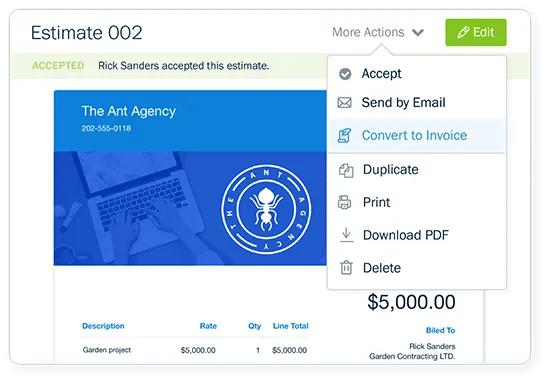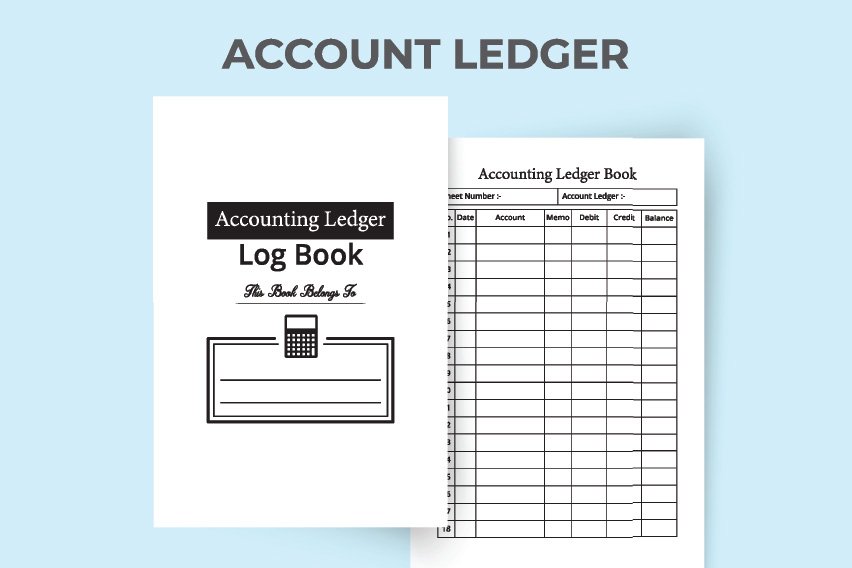How To Price Moving Jobs: A Pricing Guide for Small Businesses

Moving jobs can cost a few hundred to several thousand dollars. Because moving can be expensive, clients will want detailed, accurate estimates before they purchase your services.
Writing a formal estimate also helps a moving company take a detailed look at costs to that they end up making a profit. Just remember, you’re legally bound by the information in your written estimate, according to Consumer Affairs.
Need a professional estimate template? FreshBooks’ online estimating software makes generating and sending estimates easy. Plus, you can quickly convert them into invoices when the job’s done.
Click here to access the FreshBooks sign-up page and try our estimating software for free!
Key Takeaways
After reading through this article on how to write a great moving estimate, you’ll learn about the following:
- There are more costs to moving than you may realize at first, such as insurance, packing materials, fuel, and other fees, which are important to predict.
- An accurate estimate should contain substantial information on fees, prices, and policies.
- The best way to accurately price moving jobs is to ensure you visit the home, take a detailed inventory, choose the right estimate type, pick a suitable date, and charge by weight.
In this article, we’ll cover the following:

How Much do Movers Cost?
Understanding the actual costs of a moving project is essential in calculating moving costs for estimation purposes. Let’s break down the average prices charged by movers.
Cost of Movers Per Hour
Typically, professional movers for a local moving job will charge between $25 and $50 per hour per mover. With most movers working in teams of 2-4, the total cost of working with local moving companies can range from as low as $150 to as much as $600 for a 3-hour move. Of course, this price only factors in labor and doesn’t consider other costs like fuel, transportation fees, packing services, and insurance.
On the other hand, long-distance moving companies will naturally command a higher rate than a local moving company. Depending on the distance and the amount of cargo in question, the price of a long-distance moving estimate can increase quite a bit.
For a relatively short move of 250 miles with 1 bedroom worth of belongings, it could cost as little as $850 to $2300. For longer moves (more than 2500 miles) with 4-5 bedrooms worth of belongings, prices can go up to $10,000 and beyond.
How To Price Moving Jobs?
1. Visit the House
Don’t simply give quotes over the phone or online. It’s important to visit the potential client’s house in person so you know exactly what you’re dealing with and can charge accordingly (see additional costs below). Otherwise, you might end up lowballing yourself and confusing the client with extra fees later.
The U.S. DOT Federal Motor Carrier Safety Administration also requires that if the potential client lives within 50 miles of your location, you must draw up your estimate based on an in-person evaluation of the home’s contents. That said, the client can waive this right, if they wish, according to Consumer Affairs.
2. Make an Inventory List
Visiting the home will also help you make an inventory list of everything you will move, which you need to include with your written estimate. You must include all furniture (even smaller items) and the approximate number of boxes you’ll be moving. This inventory list must be included with your estimate, as even the smallest details can greatly impact moving expenses.
3. Decide on a Type of Estimate
There are three types of moving estimates:
- Binding moving estimates: the price you provide in the estimate must be honored in the final invoice. If anything changes, though, such as moving additional items, you can adjust the price.
- Non-binding moving estimate: you can bill up to 110 percent of the price you provide in this type of estimate at delivery time and bill additional charges later. This estimate is your best guess, and the final number is determined by the shipment weight and services provided.
- Binding-not-to-exceed moving estimate: same as a binding estimate except if the client’s items weigh less than you estimated, then the client pays less, too.
4. Consider the Moving Date
Charge twice the average during busy moving seasons, like summer and holidays. You should also set a time limit on the quote, such as 30 days. If the client doesn’t make a decision after the quote’s expiration date, draw up a new one, if requested, and make sure to add extra charges if the new relocation date falls in a busier season.
5. Charge Based on Weight
Legitimate moving companies charge based on the weight of the contents being shipped for long-distance moves. Don’t charge based on volume (measured in cubic feet). This practice is illegal in most states and it’s easy to overcharge the customer this way, which will damage your reputation, according to Consumer Affairs. Charge per pound, instead. The average is 50 cents per pound, according to Home Advisor.
You can charge by the hour for local moves The average price is $25 per hour per mover, according to My Moving Reviews. Home Advisor puts the average between $25 to $50 per mover.
Here are some average times for local moves. Multiply the $25-$50 per hour per mover rate as needed.
- Studio apartment: three to five hours with two movers
- Two-bedroom apartment: five to seven hours with three movers
- Three-bedroom house: seven to ten hours with four movers
- Homes over 5,000 square feet: it depends, but this can cost $1,500 to $2,000
6. Factor in Distance
Long-distance moves obviously will cost your client more. Here are some average prices for a move that’s about 1,000 miles with no additional services:
- Studio apartment: $1,500 at minimum
- One-bedroom apartment: $1,800 to $2,500
- Two-bedroom home: $3,500 to $4,200
7. Factor in Additional Costs
Now it’s time to factor in additional costs. Some of them you’ll know about from visiting the home, and others you’ll need the client’s approval for. Make sure all of them are included in your written estimate, so the client knows exactly what these extra fees are for and how much they’ll have to pay for these moving services.
Here are some typical additional costs:
- Stairs: some companies include a flight of stairs in their prices, while others charge extra to carry items up and down stairs.
- Long carry: specific how far your movers will carry items to their truck. Anything over that should be charged extra.
- Shuttle service: a shuttle service may be necessary if you can’t park your moving truck near the house.
- Packing: charge for packing materials and the service itself (which you can charge per item or by the hour), if the client chooses this option. This usually costs $25 to $35 an hour, according to My Moving Reviews.
- Large and heavy items: include pianos, safes, etc. If you can move these big, heavy items, charge extra. Moving a piano should cost $150 to $800.
- Moving insurance: it’s required for you to provide basic insurance but give the client the option to buy full-value coverage.
All in all, a move within a state should cost the customer around $1,170 based on a weight of 7,400 pounds and a crew of four. Of course, this price will go up and down depending on the location. A move between states should cost around $5,630 with a weight of 7,400 pounds on average and a distance of 1,220 miles (with the same caveat as before), according to Angie’s List.
Looking for a great way to make clear, detailed, accurate estimates that help you gain and keep clients, communicate costs up-front, and work within your budget? FreshBooks can help. Our estimating software is a cloud-based solution that works for moving projects of all types and scales. Plus, you can get started with FreshBooks for free!Click here to learn more about the features of our online estimating software.

Conclusion
Whether you’re running a moving company or looking to relocate your company’s location, it’s vital to understand the factors that influence the costs of professional moving services and a proper moving estimate.
The moving process has many distinct aspects that must be considered, from smaller costs like fuel and packing materials to larger ones like transportation fees and labor charges.
With a strong understanding of pricing principles for local and long-distance moving companies, you can make more informed decisions on either end of the transaction.

FAQs on How to Estimate Moving Costs
More questions on moving companies, moving estimations, calculating moving costs, or anything else with the financial part of the moving process? Here are some frequently asked questions.
How Much Should It Cost to Move?
Local moves (within your state) cost $2,300 on average for four movers at $200 an hour, according to Moving.com. This figure is for an average weight of 7,400 pounds, which is the approximate contents of a three bedroom house. This number includes packing and other essential services.
A local move for a one-bedroom apartment costs about $300 to $500 for two men, a truck and a three to five hour move at $100 an hour, according to Movers.com.
How Much Do Long Distance Movers Cost?
Long distance moves (from one state to another) cost $4,300 on average for an average weight of 7,400 pounds and distance of 1,225 miles. This number includes packing and other essential services, according to Moving.com.
A long distance move for a one-bedroom apartment starts at $1,600 for 500 miles. Add on packing services and movers insurance and the number rises to $1,900, according to Movers.com.
What Should Be Included In A Moving Quote?
Your moving quote should have the mover’s name and address, the client’s current and future address, tariff costs, miles traveled, packing supplies, fuel for the moving truck, toll fees, your minimum and estimated weights, and charges for any add-ons such as storage or insurance. It’s important to be as detailed and accurate as possible when you estimate moving costs to avoid confusion and potential disputes.
Do Movers Charge By Weight Or Volume?
Most long-distance and local movers charge by weight, not by volume. However, in certain circumstances (such as in moving projects involving freight), your professional moving company may factor both weight and volume when estimating a client’s moving-related expenses.
Why Do Movers Charge So Much?
Professional moving services are vital and require many different elements to work—all of which are factored into the final price. Consider fuel, tolls, and labor, for one thing. When comparing estimates for relocation expenses, think about the costs of a large moving truck or a portable moving container, along with the staff to operate them.
About the author
Michelle Alexander is a CPA and implementation consultant for Artificial Intelligence-powered financial risk discovery technology. She has a Master's of Professional Accounting from the University of Saskatchewan, and has worked in external audit compliance and various finance roles for Government and Big 4. In her spare time you’ll find her traveling the world, shopping for antique jewelry, and painting watercolour floral arrangements.
RELATED ARTICLES


 What Is an Intangible Asset? A Simple Definition for Small Business (With Examples)
What Is an Intangible Asset? A Simple Definition for Small Business (With Examples) What Is Straight Line Depreciation?
What Is Straight Line Depreciation? Auditing: Definition, Types, and Importance
Auditing: Definition, Types, and Importance What Is Depreciation: Definition, Types, and Calculation
What Is Depreciation: Definition, Types, and Calculation What Is a Ledger in Accounting?
What Is a Ledger in Accounting? What Is Accounting? The Basics, Explained
What Is Accounting? The Basics, Explained